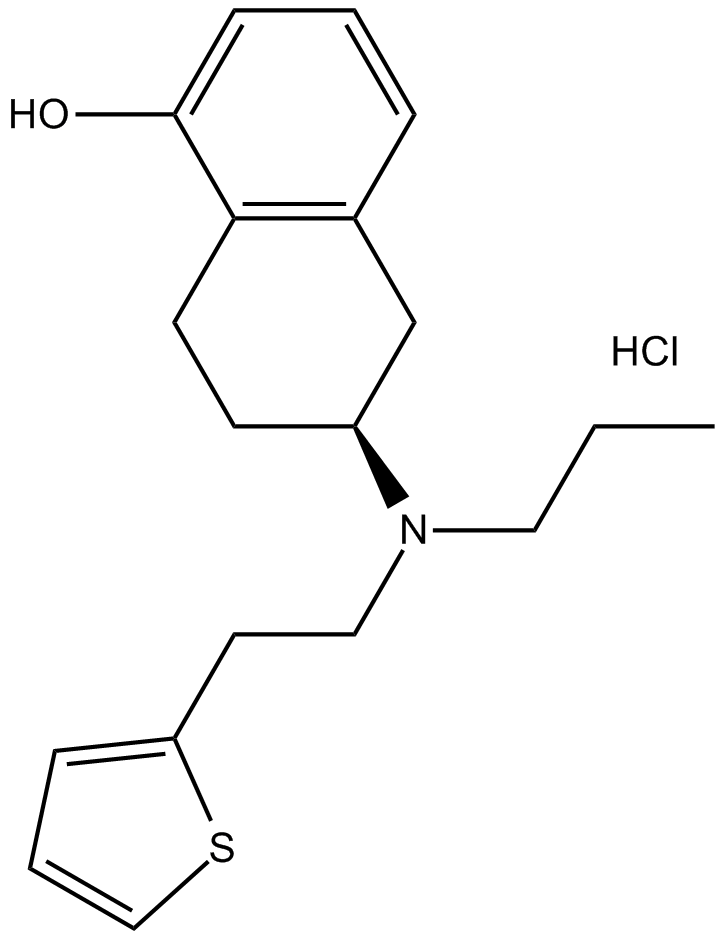Rotigotine hydrochloride |
| Catalog No.GC16017 |
A non-selective dopamine receptor agonist
Products are for research use only. Not for human use. We do not sell to patients.

Cas No.: 125572-93-2
Sample solution is provided at 25 µL, 10mM.
Rotigotine Hydrochloride (N-0923 Hydrochloride) is a full agonist of dopamine receptor, a partial agonist of the 5-HT1A receptor, and an antagonist of the α2B-adrenergic receptor, with Ki of 0.71 nM, 4-15 nM, and 83 nM for the dopamine D3 receptor and D2, D5, D4 receptors, and dopamine D1 receptor.
Rotigotine (N-0923) has a 10-fold selectivity for D3 (pKi 9.2) receptors compared with D2, D4 and D5 (pKi 8.5-8.0) and a 100-fold selectivity compared with D1 receptors (pKi 7.2). In functional studies, Rotigotine (N-0923) behaves as full agonist at all dopamine receptors but notably the potency for stimulation of D1 receptors is similar to that for D2 and D3 receptors (pEC50 respectively: 9.0, 9.4-8.6, 9.7)[1]. Rotigotine (N-0923) (10 µM) decreases the number of THir neurons by 40% in primary mesencephalic cell culture. Rotigotine (0.01 µM) slightly protects dopaminergic neurons against MPP+ toxicity, significantly protects dopaminergic neurons against rotenone-induced cell death, and significantly inhibits ROS production by rotenone[4].
In primed rats, Rotigotine (N-0923) (0.035, 0.1 and 0.35 mg/kg) induces contralateral turning behavior in a dose dependent manner. In drug naive rats, the turning behavior induced by Rotigotine, either alone or in combination with SCH 39166, is reduced compared to primed rats[3].
References:
[1]. Wood M, et al. Rotigotine is a potent agonist at dopamine D1 receptors as well as at dopamine D2 and D3 receptors. Br J Pharmacol. 2015 Feb;172(4):1124-35.
[2]. Scheller D, et al. The in vitro receptor profile of rotigotine: a new agent for the treatment of Parkinson's disease. Naunyn Schmiedebergs Arch Pharmacol. 2009 Jan;379(1):73-86.
[3]. Fenu S, et al. In vivo dopamine agonist properties of rotigotine: Role of D1 and D2 receptors. Eur J Pharmacol. 2016 Oct 5;788:183-91.
[4]. Radad K, et al. Neuroprotective effect of rotigotine against complex I inhibitors, MPP and rotenone, in primary mesencephalic cell culture. Folia Neuropathol. 2014;52(2):179-86.
Average Rating: 5 (Based on Reviews and 30 reference(s) in Google Scholar.)
GLPBIO products are for RESEARCH USE ONLY. Please make sure your review or question is research based.
Required fields are marked with *




















